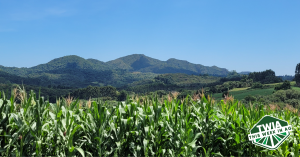We’re now five weeks away from a national election. The economy, crime, securing the border and foreign policy are top issues for most voters. But what about farmers? For answers, just look at what they value most: family. Ask any farmer about their long-term goal, and most will tell you legacy. They want to pass the farm down to the next generation. That’s why the Estate Tax is a pressing issue for our nation’s farmers and ranchers. The Estate Tax is a tax on your right to transfer property at your death. Uniformed citizens often dismiss it as a luxury tax on spoiled children, the likes of Paris Hilton, who are inheriting generational wealth and, as the talking point goes, deserve to pay their fair share. But for farm families, land is the lifeblood of their business. At prices ranging from $10,000 to $20,000 (sometimes even more) per acre, farmland tends to inflate the optics of a balance sheet. But other than potential borrowing power, there’s little practical liquidity. Farmers must farm or graze land to economically survive. In the late 1970s, a massive jump in the estate tax helped ignite the farm crisis. Many next-generation farmers, and heirs in general, could not afford the taxes on the land they inherited, especially when both commodity prices and those very land values soon dropped. Fast-forward to present day, and those farmers who persevered are now at the stage where they will soon be the ones passing down their farms. Politicians love to talk about preserving the family farm and keeping food costs low (although they haven’t been too successful at either recently). What better way is there to do that than by limiting tax burdens to ease the transition among generations? Rest assured that farmers and ranchers will evaluate the candidate’s stance on this key policy matter.
Drought conditions in Brazil are at historic levels. Water levels in many of the rivers along the Amazon basin have reached their lowest on record. We’re starting to see some market impact to the extreme dry conditions in Brazil. Since hitting a four-year low on August 12, soybean prices have climbed $1.28 per bushel. Friday’s 24-cent gain pushed many inland cash markets to about $10.20. Last week China announced a government stimulus package to lift their sagging real estate market and restore consumer confidence. The announcement had immediate effects, rallying the Chinese stock market to its best week in 16 years. It will be interesting to see what impact Beijing’s spending will have on their food imports.
Damage from Hurricane Helene has been absolutely devastating to the Southeast and Appalachia. At least 130 casualties have been already reported and many inland areas are completely washed away or under water. In addition to these massive human, infrastructure and real estate losses, the region’s agricultural industry has been battered. Georgia is the USA’s top pecan producer and second-largest cotton producer. With harvest just underway, much of the state’s $400 million pecan crop was in peril from blown down trees and nuts knocked off their branches. Cotton bolls, once open, are highly susceptible to quality-reducing damage from rains. Over two-thirds of the state’s cotton bolls had opened, putting the annual $1 billion crop at serious risk. Then there’s damage to poultry houses, livestock, buildings and equipment. Farmers in the Carolinas and Tennessee share similar fates. Insurance adjusters figure to be very busy in the days ahead as farmers and rural residents scramble to rebuild their lives. May God Bless them.
Related Posts

This Week in Ag #12
#Plant23 is well underway. From the time seeds are sown, how many days should it take for crops to emerge? That can vary greatly, from days to weeks. But for many crops, it’s not really about calendar days, but Growing Degree Days (GDD).

This Week in Ag #81
“They haven’t been farming it as long,” was the response my western Illinois-based Grandpa would offer when confronted with news of success stories coming from the west (a region he defined as across the Mississippi River, less than 50-miles from his farm). I’ve long held a similar belief when it comes to the adoption of non-traditional

This Week in Ag #24
Yellow airplanes were buzzing over Iowa cornfields like bumblebees over zinnias during my drive to Iowa last week. There was a time when Midwest farmers would grind their teeth at the sight of these crop dusters. It usually meant a neighbor was treating a pest problem with a costly, unplanned aerial application. And that pest problem

